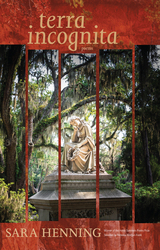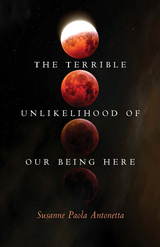Meditation as Spiritual Therapy: Bernard of Clairvaux's De consideratione
Catholic University of America Press, 2024
eISBN: 978-0-8132-3801-2 | Paper: 978-0-8132-3800-5
See other books on: Christian Living | Meditation | Meditations | Monasticism | Spiritual Growth
See other titles from Catholic University of America Press
eISBN: 978-0-8132-3801-2 | Paper: 978-0-8132-3800-5
ABOUT THIS BOOK | AUTHOR BIOGRAPHY
ABOUT THIS BOOK
Christian persons today might seek spiritual development and ponder
the benefit of mindfulness exercises but also maintain concerns if they perceive such exercises to originate from other religious traditions. Such persons may not be aware of a long tradition of meditation practice in Christianity that promotes personal growth.
This spiritual tradition receives a careful formulation by Christian mo-
nastic authors in the twelfth century. One such teaching on meditation is found in the treatise De consideratione written by St. Bernard of Clairvaux (d. 1153) to Pope Eugene III (d. 1153). In textual passages where St. Bernard exhibits a clear concern for the mental health of the Pope (due to numerous ongoing ecclesial, political, and military problems), St. Bernard reminds Eugene III of his original monastic vocation and the meditation exercises associated with that vocation. The advice that St. Bernard gives to Eugene III can be received today in a way that provides a structure for Christian meditation practice which is relevant for personal develop-
ment, spiritual direction, and civil psychotherapy that integrates a client’s spirituality into the course of treatment. St. Bernard thus might be interpreted as a teacher of a kind of Christian mindfulness that can benefit both a person’s mental health as well as a person’s relationship with God. Meditation as Spiritual Therapy examines the historical context of Bernard’s work, his purpose for writing it, as well as the numerous Christian sources he drew upon to formulate his teaching. Bernard’s teaching on the course of meditation itself is explored in depth and in dialogue with
his other treatises, letters, and sermons.
Lastly, a contemporary summary of Bernard’s teaching is provided with reflections concerning the relationship of this teaching to contemporary spiritual direction and spiritually integrated civil psychotherapy.
the benefit of mindfulness exercises but also maintain concerns if they perceive such exercises to originate from other religious traditions. Such persons may not be aware of a long tradition of meditation practice in Christianity that promotes personal growth.
This spiritual tradition receives a careful formulation by Christian mo-
nastic authors in the twelfth century. One such teaching on meditation is found in the treatise De consideratione written by St. Bernard of Clairvaux (d. 1153) to Pope Eugene III (d. 1153). In textual passages where St. Bernard exhibits a clear concern for the mental health of the Pope (due to numerous ongoing ecclesial, political, and military problems), St. Bernard reminds Eugene III of his original monastic vocation and the meditation exercises associated with that vocation. The advice that St. Bernard gives to Eugene III can be received today in a way that provides a structure for Christian meditation practice which is relevant for personal develop-
ment, spiritual direction, and civil psychotherapy that integrates a client’s spirituality into the course of treatment. St. Bernard thus might be interpreted as a teacher of a kind of Christian mindfulness that can benefit both a person’s mental health as well as a person’s relationship with God. Meditation as Spiritual Therapy examines the historical context of Bernard’s work, his purpose for writing it, as well as the numerous Christian sources he drew upon to formulate his teaching. Bernard’s teaching on the course of meditation itself is explored in depth and in dialogue with
his other treatises, letters, and sermons.
Lastly, a contemporary summary of Bernard’s teaching is provided with reflections concerning the relationship of this teaching to contemporary spiritual direction and spiritually integrated civil psychotherapy.
See other books on: Christian Living | Meditation | Meditations | Monasticism | Spiritual Growth
See other titles from Catholic University of America Press












